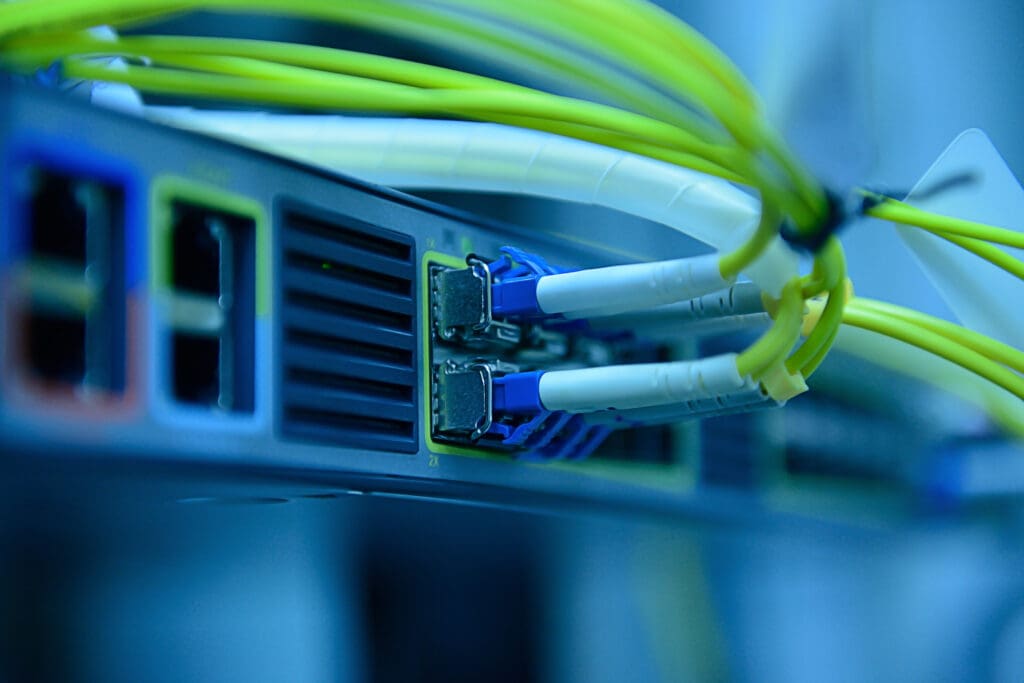In the digital era, where seamless communication and fast data transfer are integral to business success, the significance of a robust data cabling infrastructure cannot be overstated. However, understanding the cost of data cabling services can be a complex task, with various factors influencing the overall investment. In this comprehensive blog post, we’ll delve into the intricacies of data cabling costs, exploring the elements that contribute to the pricing structure and the value businesses gain from this crucial investment.
The Foundation of Modern Connectivity
Data cabling serves as the silent backbone of any organization’s connectivity. It encompasses the network of cables that facilitate the transmission of data between devices within an organization. From computers and phones to servers and other networking equipment, a well-designed and properly installed data cabling system is essential for the seamless flow of information.
Key Factors Influencing Data Cabling Costs
1. Scope of the Project:
The size and scope of the data cabling project have a direct impact on the overall cost. Larger buildings or complex infrastructures with multiple floors and rooms require more cabling, connectors, and labor, thus contributing to a higher investment.
2. Type of Cabling Material:
The type of cabling material chosen plays a significant role in determining costs. Copper and fiber-optic cables are the two primary options, each with its own advantages and price points. Fiber-optic cables, known for their high bandwidth and durability, often come at a higher cost compared to traditional copper cables.
3. Cabling Category and Standards:
Data cabling is categorized into various standards (e.g., Cat5e, Cat6, Cat6a) that define its capabilities. Higher categories typically support greater bandwidth and faster data transfer speeds. The choice of cabling category influences costs, with more advanced categories often requiring a higher investment.
4. Installation Complexity:
The complexity of the installation process affects the overall cost. Factors such as the accessibility of spaces, existing infrastructure, and any necessary modifications to accommodate cabling contribute to the complexity. Installations in older buildings or spaces with limited access may require additional labor and resources, impacting the cost.
5. Labor Costs:
The labor involved in the installation, termination, and testing of data cabling is a substantial component of the overall cost. Highly skilled technicians with expertise in data cabling systems ensure a professional and efficient installation but may contribute to higher labor costs.
6. Additional Components and Equipment:
Beyond the cables themselves, data cabling projects often require additional components and equipment. This includes connectors, patch panels, switches, and other networking hardware. The quality and specifications of these components can influence costs.
7. Certification and Testing:
To ensure the reliability and performance of the data cabling system, thorough testing and certification are essential. The cost of certification tools, testing equipment, and the time required for rigorous testing contribute to the overall investment.
Value Beyond the Price Tag
While understanding the cost of data cabling services is crucial, it’s equally important to recognize the value businesses derive from this investment. Here are key areas where the value surpasses the initial expenditure:
1. Reliable Connectivity:
A professionally installed data cabling system ensures reliable connectivity. Reduced downtime and consistent network performance contribute to enhanced productivity and operational efficiency.
2. Scalability:
Investing in a robust data cabling infrastructure provides scalability for future growth. Businesses can easily integrate new technologies, accommodate additional devices, and expand their operations without the need for frequent and disruptive upgrades.
3. High-Speed Data Transfer:
Upgrading to advanced cabling categories supports high-speed data transfer, crucial for modern business operations. Faster data transfer enhances the performance of applications, supports real-time communication, and improves overall user experience.
4. Adherence to Standards:
Professional data cabling services ensure compliance with industry standards and regulations. Adhering to these standards not only ensures optimal performance but also mitigates the risk of potential legal and regulatory issues.
5. Reduced Maintenance Costs:
A well-designed and professionally installed data cabling system minimizes the need for frequent maintenance. This, in turn, reduces long-term operational costs associated with troubleshooting and repairs.
6. Security and Reliability:
Security is a paramount concern in the digital age. Professionally installed data cabling systems incorporate secure practices, reducing the risk of unauthorized access and data breaches. This instills confidence in the reliability and integrity of the network.
Making Informed Decisions
As businesses in Fort Worth or elsewhere consider investing in data cabling services, it’s essential to approach the decision-making process with a clear understanding of both the costs and the long-term benefits. Professional consultation with experienced data cabling service providers can help businesses navigate the complexities and make informed decisions aligned with their specific needs and goals.
Conclusion
The cost of data cabling services is an investment in the foundation of modern connectivity. While the initial expenditure may vary based on factors such as scope, materials, and labor, the long-term value derived from a well-designed and professionally installed data cabling infrastructure is immeasurable.
In the dynamic business landscape of Fort Worth, businesses that prioritize connectivity excellence position themselves for success. It’s in this context that Wired In Tech Services emerges as a reliable partner, offering comprehensive data cabling solutions that not only meet the technical requirements of businesses but also provide long-lasting value. By choosing Wired In, businesses in Fort Worth invest in a connectivity foundation that supports growth, innovation, and seamless operations in the digital age.


